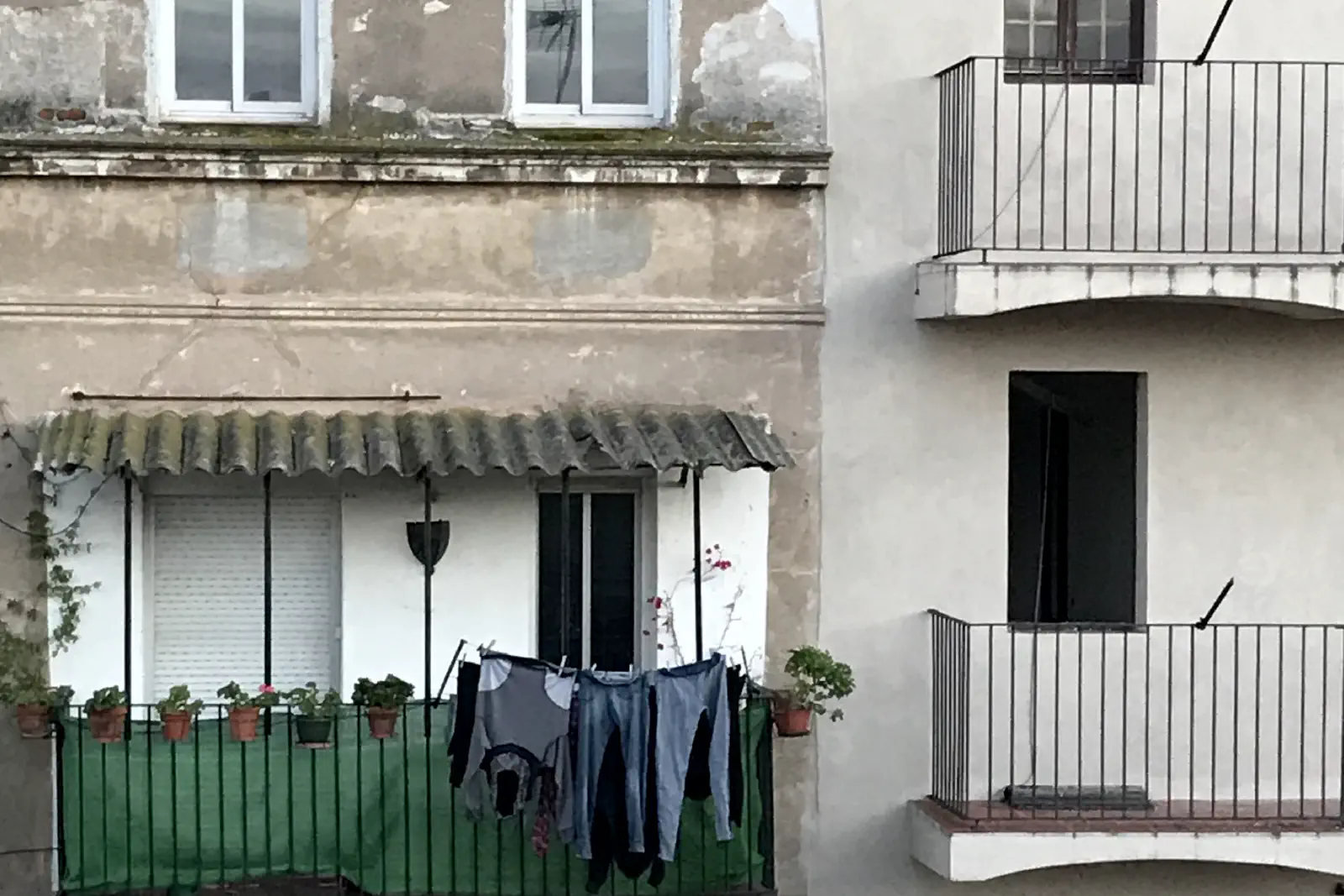
Precarious citizenship in Barcelona
In the heart of Barcelona, amidst its celebrated architecture and bustling streets, lies a starkly different reality: informal settlements that serve as a glaring testament to the precariousness undergirding the Spanish housing market.
The landscape of informal settlements in Barcelona has undergone an evolution in recent years. In the aftermath of the Spanish housing crash, many people cast aside by the formal economy and housing market squatted abandoned buildings, especially the dilapidated warehouses of the deindustrialized Poblenou neighborhood. In 2012, municipal social services counted 800 people living in 62 settlements, in groups ranging from a handful to the hundreds in size.
Eventually, economic growth returned in 2014. Yet the crisis of housing affordability persisted. So, too, did many of the settlements. In the aftermath of the COVID-19 pandemic, they even proliferated, as displaced households began to occupy the dilapidated shops and bank offices abandoned by a digitally distanced economy. This proliferation is not surprising. Informal settlements are not the result of lax regulation or simple policy oversight. Rather, they are structural features of neoliberalism, the product of artificial scarcity imposed by private property rights, and the predictable result of capitalism’s relentless commodification of life.
Informal settlements emerge in the cracks of property markets and citizenship frameworks. The everyday lives of their inhabitants are defined by the interplay between race, nationality, class, and gender. Predominantly undocumented migrants and Spanish nationals of Romani origin, people living in informal settlements typically find themselves suspended in a web of administrative irregularity, economic precariousness, criminalization and social stigma.
The economic landscape of the inhabitants of Barcelona’s informal settlements is characterized by an informal economy that, while providing subsistence, simultaneously ensnares people in cycles of exploitation and marginalization. Their work is marked by a lack of protection, unsafe conditions, and an omnipresent threat of legal and social repercussions, reinforcing a state of perpetual vulnerability.
The living conditions within these settlements are dire, marked by overcrowding, inadequate access to clean water, electricity, and sanitation, as well as a constant threat of eviction. Yet these conditions are just more extreme iterations of inequalities endemic to Spain’s housing market. Non-EU migrant households are systematically more likely than Spanish ones to face displacement pressure, higher levels of housing precariousness and higher rental costs for comparable housing1.
This suggests that the distress people face in informal settlements are not mere outcomes of individual circumstances. Rather, they are rooted in systemic failures of democratic governance and policy to guarantee universal rights under capitalism.
These failures belie the notions of democratic citizenship and universality upon which the contemporary welfare states of the Global North were constructed.
Indeed, they reveal a citizenship gradient in which the most precarious citizens experience partial rights, as well as extreme instability and insecurity in their social and legal recognition as members of a state or society. The concept of precarious citizenship thus encompasses not only the legalistic aspects of citizenship status but also the lived experiences of insecurity, instability, and exclusion2.
Yet, within these enclaves of precarity, bonds of mutual aid and solidarity have often fostered an alternative sense of belonging in Barcelona, as uncounted and exploited citizens pushed back against their exclusion and disenfranchisement.
The history of informal settlements in Barcelona can be traced back to the rapid industrialization and urbanization processes of the late 19th and early 20th centuries, which attracted waves of migrant workers seeking employment in the city’s burgeoning industries. These workers, often arriving with limited resources, found themselves on the margins of the urban fabric, leading to the emergence of shantytowns and makeshift housing, a phenomenon known in Catalan as barraquisme. The post-Spanish Civil War period and the subsequent Franco dictatorship saw continued urban migration, exacerbated by political repression and economic hardship, further contributing to the proliferation of informal settlements around Barcelona’s peripheries.
During the 1960s and 1970s, Barcelona experienced significant economic changes and urban renewal projects that aimed to modernize the city. This process accelerated considerably in the 1980s, in preparation for the 1992 Olympic Games. Throughout the city’s history of informal settlement, neighborhood associations achieved concessions through civil disobedience and direct action campaigns, from the dictatorship first and eventually from elected officials. Especially in anticipation of the Olympics, the local government made a concerted effort to address the issue of informal settlements, resulting in the relocation of many residents to new public housing developments. However, these relocations, while reducing the visibility of shantytowns, did not fully resolve the underlying issues of housing affordability and social exclusion, leading to new forms of informal housing and settlements.
Indeed, responses from local authorities and policymakers to the injustices faced by residents of informal settlements typically lack depth and commitment. Targeted actions seek incremental improvements in living conditions, yet do not ensure meaningful participation and inclusion of affected communities in decision-making processes. This gap between policy and practice underscores the need for a more holistic and inclusive approach to urban governance, one that recognizes the interconnectedness of housing, social inclusion, and citizenship rights, and prioritize these fundamental rights over the right to private property.


